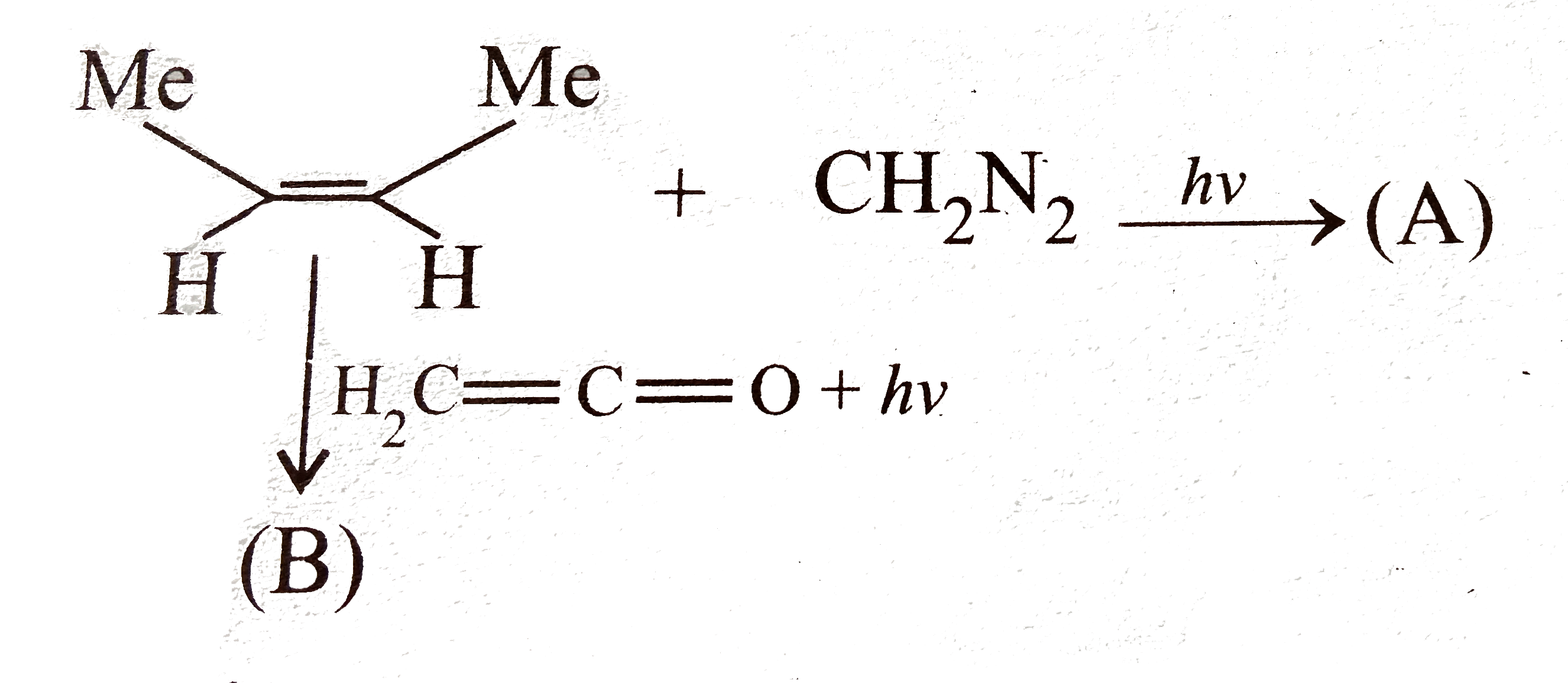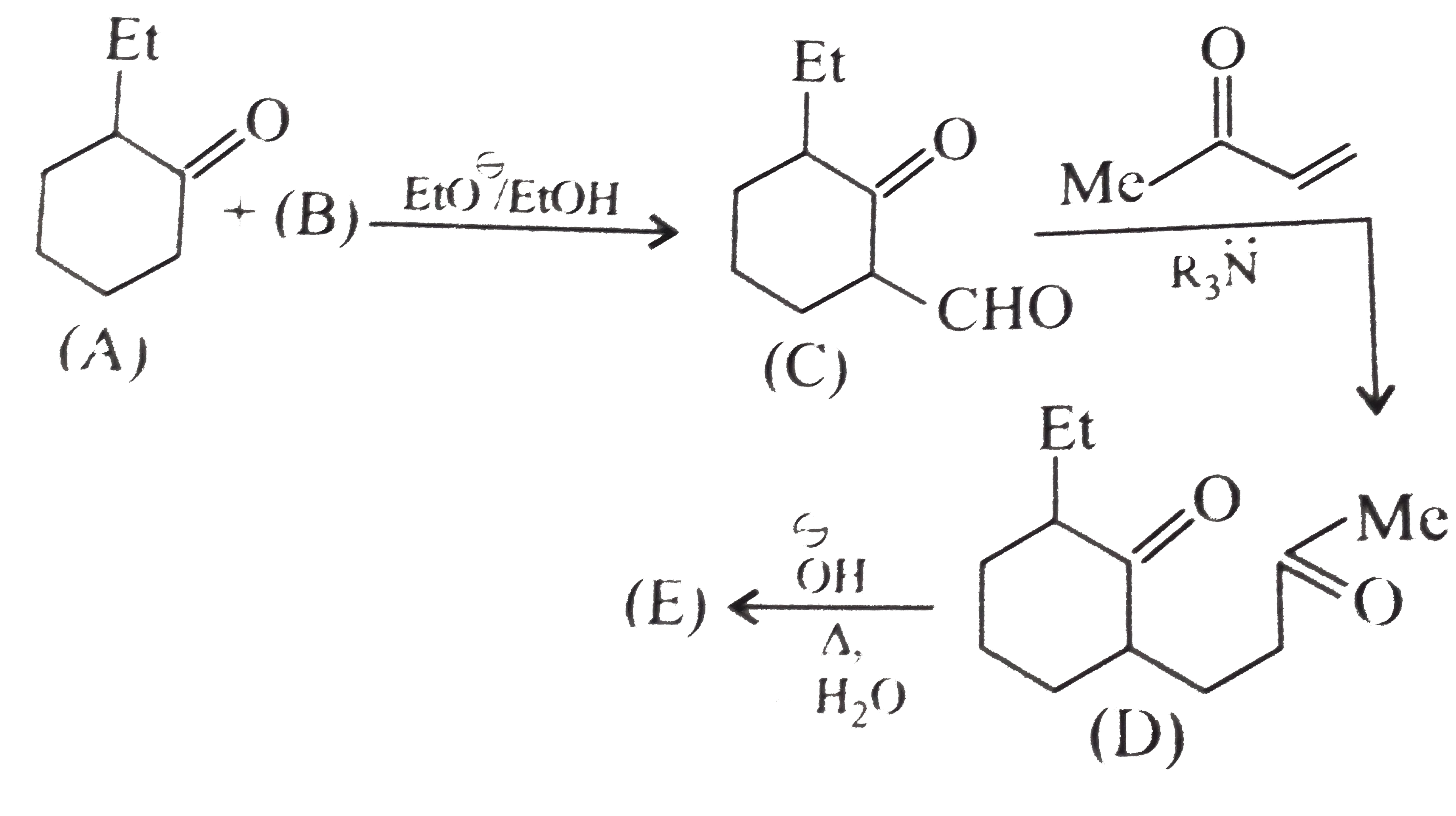Which statement is/are correct.
No primary kinetic isotope effect is observed during nitration of benzene
KH/KD=1 for halogenation of benzene
KH/KD=1 for sulphonation of benzene
KH/KD is >greater than 1 for alkylation of benzene
The correct Answer is:A, B
To determine which statements are correct regarding the kinetic isotope effects in the nitration, halogenation, sulfonation, and alkylation of benzene, we will analyze each statement step by step.
Step 1: Analyze the first statement
Statement: No primary kinetic isotope effect is observed during nitration of benzene.
Analysis:
In the nitration of benzene, the rate-determining step does not involve the breaking of a carbon-hydrogen bond. Since the primary kinetic isotope effect (KIE) is observed when there is a bond breaking involving hydrogen, the absence of such a bond breaking in the rate-determining step means that no primary KIE is observed.
Conclusion: This statement is correct.
Step 2: Analyze the second statement
Statement: kH/kD = 1 for halogenation of benzene.
Analysis:
Similar to nitration, the halogenation of benzene does not involve the breaking of a carbon-hydrogen bond in the rate-determining step. Therefore, the ratio of the rate constants for the reaction with hydrogen (kH) to that with deuterium (kD) will also be equal to 1, indicating no primary kinetic isotope effect.
Conclusion: This statement is correct.
Step 3: Analyze the third statement
Statement: kH/kD = 1 for sulfonation of benzene.
Analysis:
In the sulfonation of benzene, the first step involves the breaking of a carbon-hydrogen bond, which is the rate-determining step. This means that the primary kinetic isotope effect will be observed, and thus kH/kD will be greater than 1, not equal to 1.
Conclusion: This statement is incorrect.
Step 4: Analyze the fourth statement
Statement: kH/kD > 1 for alkylation of benzene.
Analysis:
In the alkylation of benzene, similar to halogenation, the rate-determining step does not involve the breaking of a carbon-hydrogen bond. Therefore, the ratio kH/kD will be equal to 1, not greater than 1.
Conclusion: This statement is incorrect.
Final Summary of Correct Statements
The correct statements are:
1. No primary kinetic isotope effect is observed during nitration of benzene (Correct).
2. kH/kD = 1 for halogenation of benzene (Correct).
3. kH/kD = 1 for sulfonation of benzene (Incorrect).
4. kH/kD > 1 for alkylation of benzene (Incorrect).
Thus, the correct statements are the first and second statements.
---
Statement: No primary kinetic isotope effect is observed during nitration of benzene.
In the nitration of benzene, the rate-determining step does not involve the breaking of a carbon-hydrogen bond. Since the primary kinetic isotope effect (KIE) is observed when there is a bond breaking involving hydrogen, the absence of such a bond breaking in the rate-determining step means that no primary KIE is observed.
Statement: kH/kD = 1 for halogenation of benzene.
Similar to nitration, the halogenation of benzene does not involve the breaking of a carbon-hydrogen bond in the rate-determining step. Therefore, the ratio of the rate constants for the reaction with hydrogen (kH) to that with deuterium (kD) will also be equal to 1, indicating no primary kinetic isotope effect.
Statement: kH/kD = 1 for sulfonation of benzene.
In the sulfonation of benzene, the first step involves the breaking of a carbon-hydrogen bond, which is the rate-determining step. This means that the primary kinetic isotope effect will be observed, and thus kH/kD will be greater than 1, not equal to 1.
Statement: kH/kD > 1 for alkylation of benzene.
In the alkylation of benzene, similar to halogenation, the rate-determining step does not involve the breaking of a carbon-hydrogen bond. Therefore, the ratio kH/kD will be equal to 1, not greater than 1.
The correct statements are:
1. No primary kinetic isotope effect is observed during nitration of benzene (Correct).
2. kH/kD = 1 for halogenation of benzene (Correct).
3. kH/kD = 1 for sulfonation of benzene (Incorrect).
4. kH/kD > 1 for alkylation of benzene (Incorrect).
Topper's Solved these Questions
- ORGANIC REACTION MECHANISMS - IIBOOK - RESONANCE ENGLISHCHAPTER - ORGANIC REACTION MECHANISMS - IIEXERCISE - APSP Part - 2
42 Videos
- MOLE CONCEPTBOOK - RESONANCE ENGLISHCHAPTER - MOLE CONCEPTEXERCISE - ORGANIC CHEMISTRY(BASIC CONCEPTS)
27 Videos
- ORGANIC REACTION MECHANISMS-IVBOOK - RESONANCE ENGLISHCHAPTER - ORGANIC REACTION MECHANISMS-IVEXERCISE - APSP PART-3
22 Videos
Similar Questions
Which statements is/are correct about sodium nitroprusside test ?
View SolutionWhich statements is/are correct about the following reaction ?

View SolutionWhich statements is/ are correct.
View SolutionWhich statements is//are correct?
View SolutionWhich statements is//are correct?
View SolutionWhich statement/s is/are correct?
View Solution
Which statements is/are correct about the formation of (E) from (D) ?
View SolutionWhich statement(s) is/are correct?
View SolutionWhich statement(s) is/are correct
View Solution
Which statement(s) is/are correct?
View Solution
